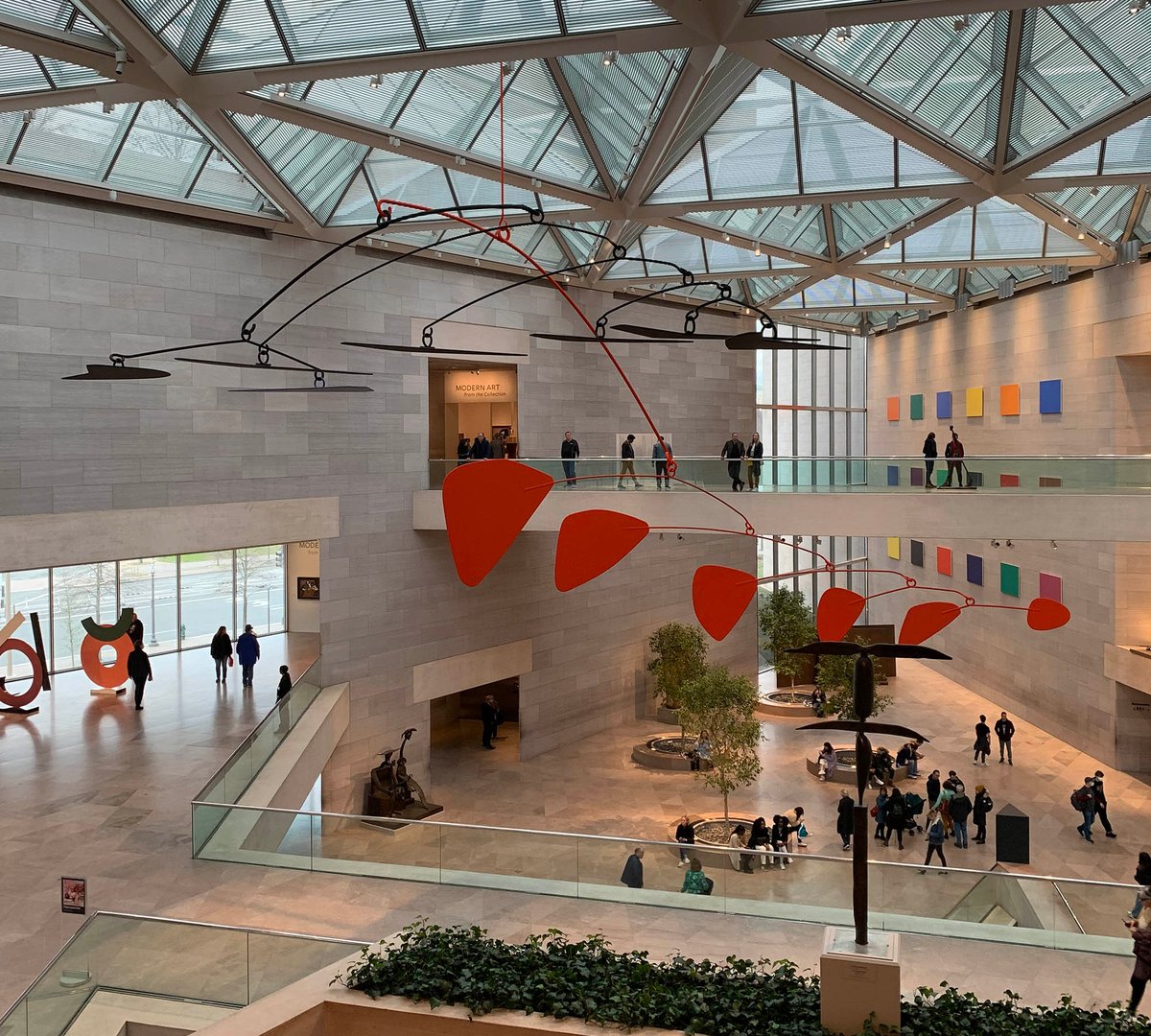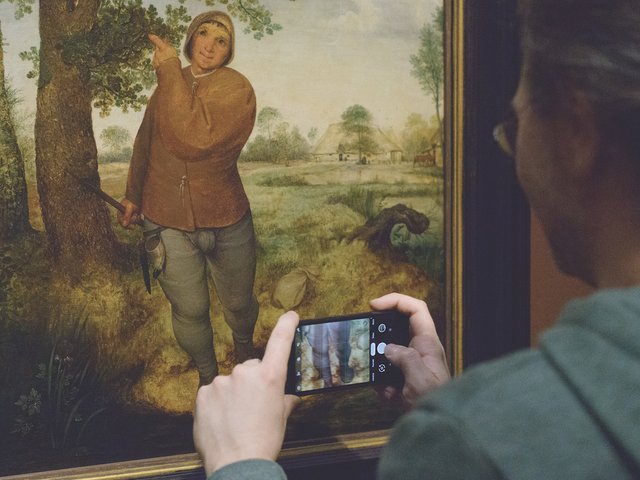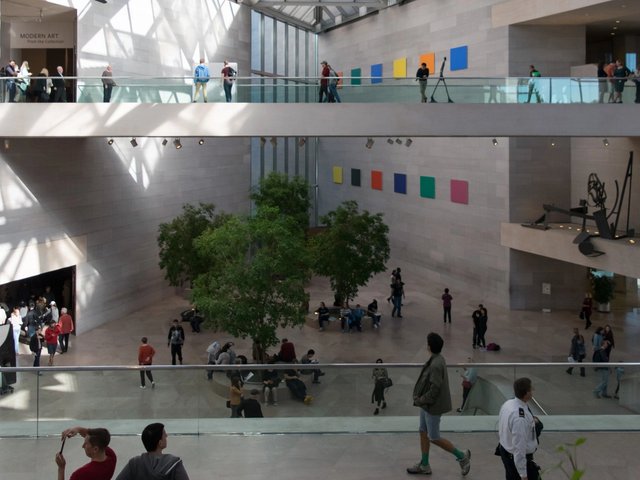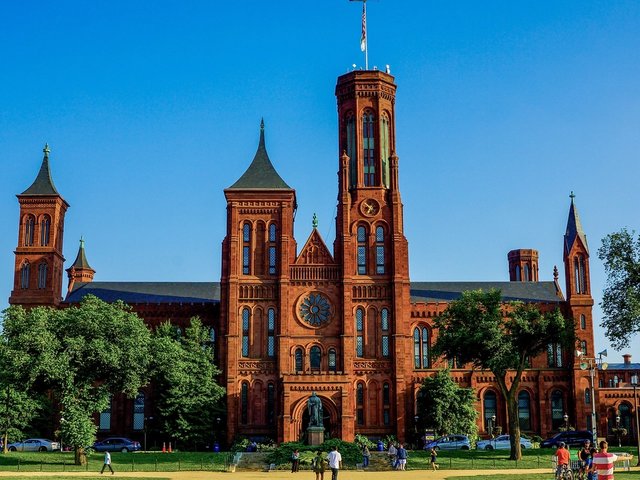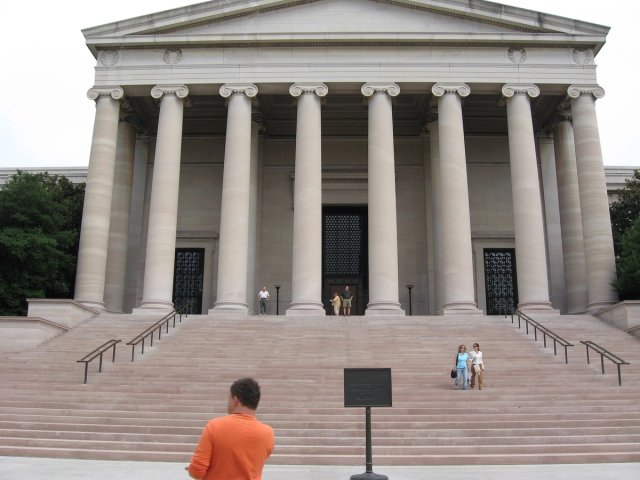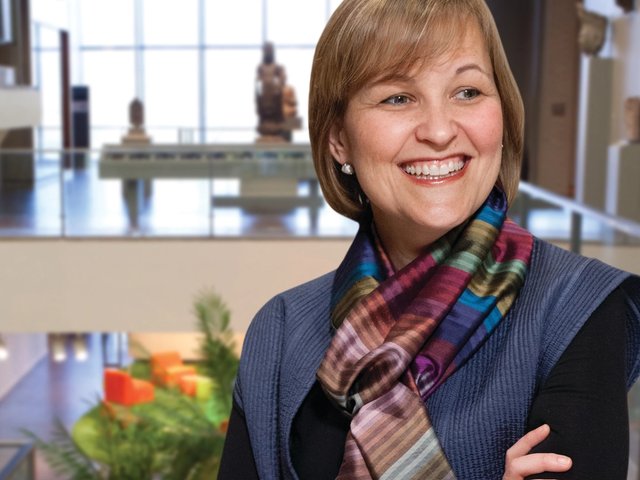On 22 July, the National Gallery of Art (NGA) in Washington, DC, reportedly escorted a visitor with a disability off its premises due to a bag violation, prompting a furor on Twitter and subsequent apology from the institution.
The incident gained visibility following the circulation of a Twitter thread in which the visitor in question, artist Celeste Tooth, decried the NGA's alleged insensitivity. Tooth, who uses the pronouns they and them, is a student and teaching assistant at the Maryland Institute College of Art (Mica). They were leading a field trip of 16- and 17-year-old students to the museum when an NGA guard stopped them for wearing a backpack on two shoulders rather than one, against museum guidelines. When Tooth, who was accompanied by a service dog, explained that their backpack was full of medication and that their neurosurgeon had recommended they wear their backpack on both shoulders to minimise the risk of it falling, the guard refused to compromise on the bag policy, according to Tooth.
The reasonable accommodation I requested — that this museum provided previously including earlier this month— was to keep my double shoulder purse with me at all times.@ngadc had security remove me because of this request. Even after I asked about alternate solutions.
— ♡˚✧⁎ ⚢ Tooth ⚢ ⁺˳༚☆ (@toothasinteeth) July 22, 2023
In a statement to Hyperallergic, NGA spokesperson Anabeth Guthrie said that a security worker “offered assistance and multiple options for storing or carrying the bag in line with our policy to be inclusive and welcoming” but that Tooth was unreceptive. Tooth denied this description of events, alleging that the guard told them they were “taking too much time” and forced them to leave the museum.
In a statement to The Art Newspaper, Tooth elaborated on the incident: "I was told that my two options as a singular individual were to check my medical bag (not feasible as it contains life saving medications) or wear it on one shoulder (also not feasible due to my spinal disability. I repeatedly expressed that I was very open to finding an alternative way to keep my medical supplies with me."
Tooth has accused NGA of “violent ableism”, claiming that the museum’s decision to remove them was a “clear violation of the Americans with Disabilities Act”. “It is not uncommon for museum attendants to tell me, ‘You have to carry your backpack on one shoulder,’” Tooth told Hyperallergic, adding that after a short conversation, staff members typically understand and respect their medical needs.
“Our goal is to create an inclusive and welcoming space for all, and it deeply saddens us to learn that your experience did not reflect our values,” an NGA spokesperson told Tooth in a public apology posted on 24 July. The apology also stated that the institution had sent contact details for the museum’s diversity, inclusion and belonging officer to Tooth via Twitter direct message, asking Tooth to share further details about the incident.
“What other information would you like?” Tooth responded in a tweet. “May I suggest a paid meeting with you to discuss ways in which you can make your museum accessible to people like me—considering the amount of time and emotional labour this has already required from me as a Disabled person.”
This is not the first time a museum has been pressured to re-examine its backpack policy; last March, an Indigenous mother was asked to remove her traditional woven baby basket after being told it violated the Portland Art Museum’s “no backpacks” policy. The museum publicly apologised to the woman after her Facebook post about the incident gained widespread attention.


